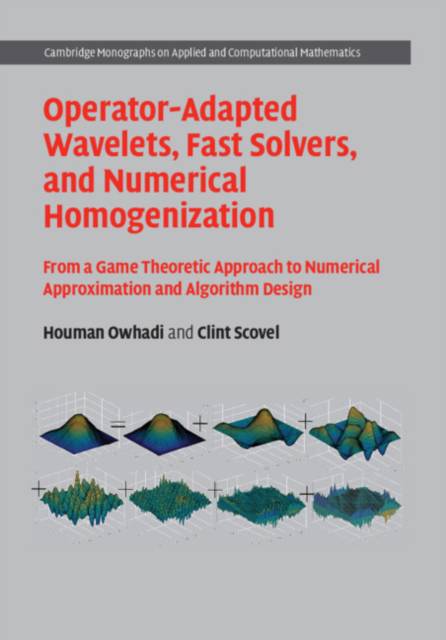
- Afhalen na 1 uur in een winkel met voorraad
- Gratis thuislevering in België vanaf € 30
- Ruim aanbod met 7 miljoen producten
- Afhalen na 1 uur in een winkel met voorraad
- Gratis thuislevering in België vanaf € 30
- Ruim aanbod met 7 miljoen producten
Zoeken
Operator-Adapted Wavelets, Fast Solvers, and Numerical Homogenization
From a Game Theoretic Approach to Numerical Approximation and Algorithm Design
Houman Owhadi, Clint Scovel
€ 259,45
+ 518 punten
Omschrijving
Although numerical approximation and statistical inference are traditionally covered as entirely separate subjects, they are intimately connected through the common purpose of making estimations with partial information. This book explores these connections from a game and decision theoretic perspective, showing how they constitute a pathway to developing simple and general methods for solving fundamental problems in both areas. It illustrates these interplays by addressing problems related to numerical homogenization, operator adapted wavelets, fast solvers, and Gaussian processes. This perspective reveals much of their essential anatomy and greatly facilitates advances in these areas, thereby appearing to establish a general principle for guiding the process of scientific discovery. This book is designed for graduate students, researchers, and engineers in mathematics, applied mathematics, and computer science, and particularly researchers interested in drawing on and developing this interface between approximation, inference, and learning.
Specificaties
Betrokkenen
- Auteur(s):
- Uitgeverij:
Inhoud
- Aantal bladzijden:
- 488
- Taal:
- Engels
- Reeks:
- Reeksnummer:
- nr. 35
Eigenschappen
- Productcode (EAN):
- 9781108484367
- Verschijningsdatum:
- 24/10/2019
- Uitvoering:
- Hardcover
- Formaat:
- Genaaid
- Afmetingen:
- 184 mm x 248 mm
- Gewicht:
- 1043 g

Alleen bij Standaard Boekhandel
+ 518 punten op je klantenkaart van Standaard Boekhandel
Beoordelingen
We publiceren alleen reviews die voldoen aan de voorwaarden voor reviews. Bekijk onze voorwaarden voor reviews.











